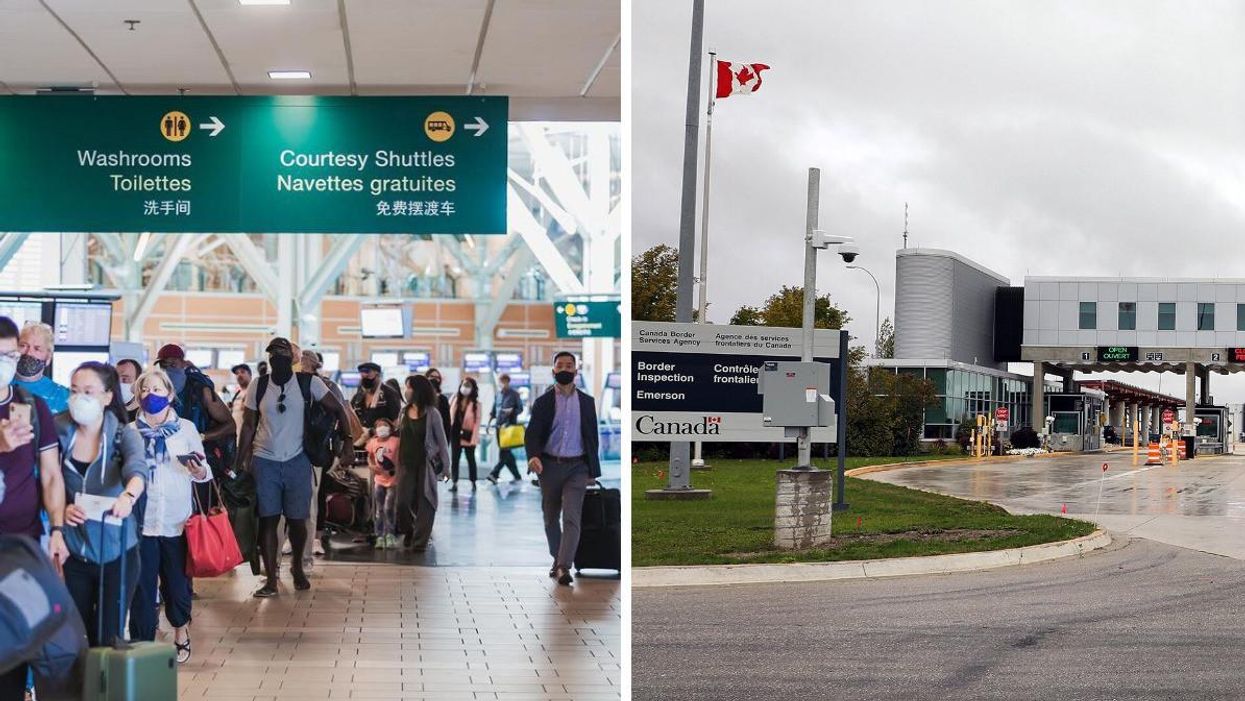CBSA Union Says There Could Be 'Significant Delays' At The Border When Restrictions Are Lifted
ArriveCAN not being mandatory could lead to increased travel volumes.

Travellers going through Vancouver International Airport. Right: Border crossing in Manitoba between Canada and the U.S.
The union representing Canada Border Services Agency (CBSA) workers has revealed that there could be "significant delays" when Canada's travel restrictions are lifted.
During a House of Commons committee meeting on September 27, officials joined to talk about the potential impacts of ArriveCAN on certain sectors following the announcement that travel rules are changing.
Mark Weber, the national president of the Customs and Immigration Union that represents CBSA workers, said it's "hard to convey the relief that border officers across the country must be feeling" now that the app will no longer be mandatory.
"While border officers take great pride in their duty to serve the Canadian public, I know with great certainty that none of them imagined the best use of a trained law enforcement officer would be to provide IT support," Weber said.
The union president also claimed that ArriveCAN is part of a "pattern of overreliance on automated technologies" that includes primary inspection kiosks and eGates.
"What I urge the government and the agency to do now is to turn their attention to the severe deficit in personnel afflicting border services throughout the country," Weber said.
He also noted that staffing shortages at the border are "severe" right now and are happening all over the country.
Weber shared that the union wasn't consulted when ArriveCAN was introduced, and it hasn't been consulted about what will happen when the app becomes optional.
"If it increases travel, no longer having the requirement that ArriveCAN be completed, our staffing shortages are not going away," he said. "We're in a place now where if travel does start to significantly increase, we're going to see significant delays at our borders."
Canada's travel restrictions are ending, and that means travellers won't be required to prove their COVID-19 vaccination status, use ArriveCAN or be randomly tested upon arrival in Canada as of Saturday, October 1.
That applies to returning Canadian travellers along with international visitors entering the country through land, air and sea borders.
Also, passengers on planes and trains in Canada won't have to wear masks or face coverings during their trip regardless of their vaccination status come October.